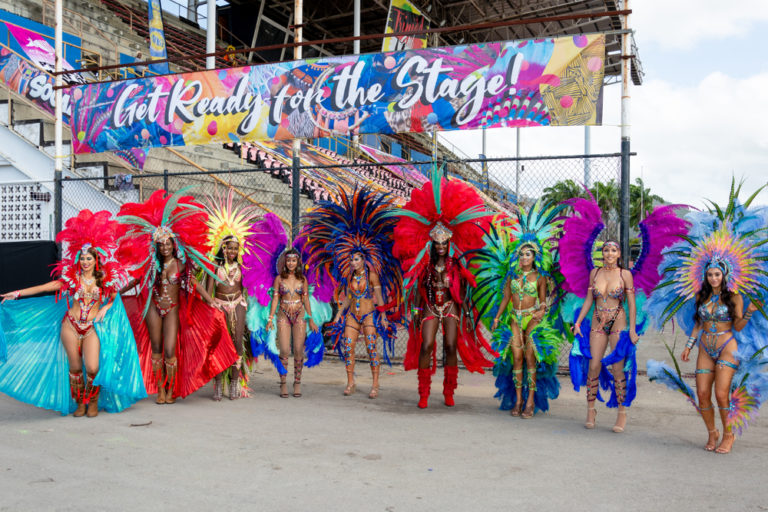
Have you ever been to a Carnival on the Caribbean islands? Carnivals in the Caribbean islands are world-famous festivals that bring together an explosion of music, food, dance, and costume. Due to their religious origins, many of these galas take place before Lent and end on Ash Wednesday, but some have changed dates and new ones have appeared over the years. We take a look at ten spectacular Carnivals held on these tropical islands.
-
Tobago Carnival
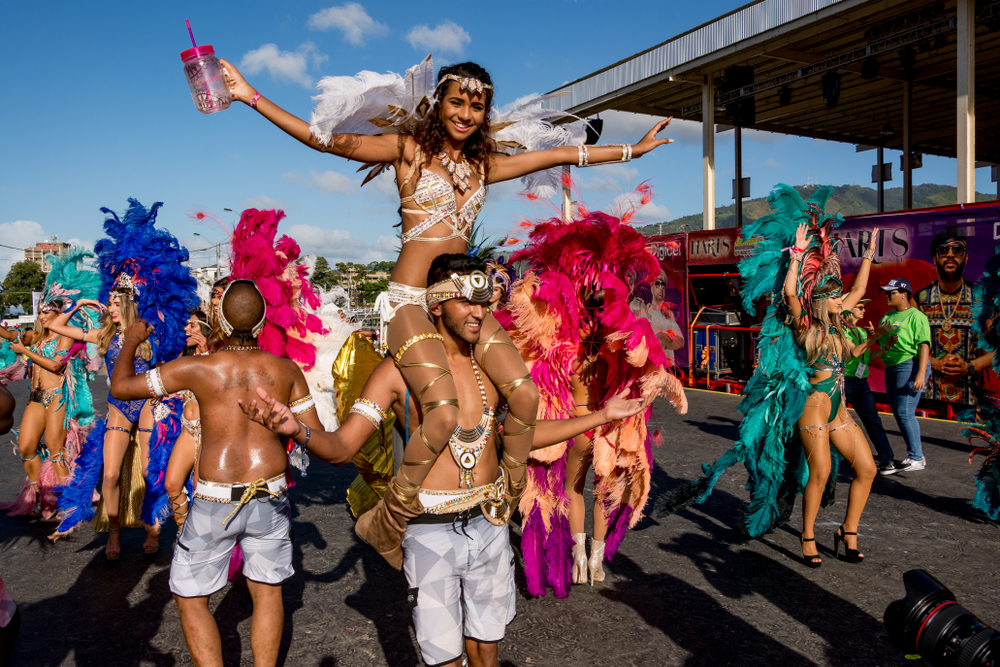
Not to be mistaken for the Trinidad and Tobago Carnival, Tobago’s Carnival will seize the opportunity to develop its own style. Tashia Burris, Secretary of Tourism, Culture and Sports, stated that, “We plan to put on a spectator’s spectacle as well as a masquerader’s masquerade.” She went on to say: “The October Carnival festivities will reveal hidden treasures of our cultural soul and reshape the Carnival experience as we know it, giving birth to a new and unique tourism product that is New World in context, viable in regional visioning, and momentous in local structure.” A Night Mas, a Mud Festival, and a TUCO Tobago Lime are among the many events that will take place. Tobago Carnival will take place from October 28 to October 30.
2. Martinique Carnival
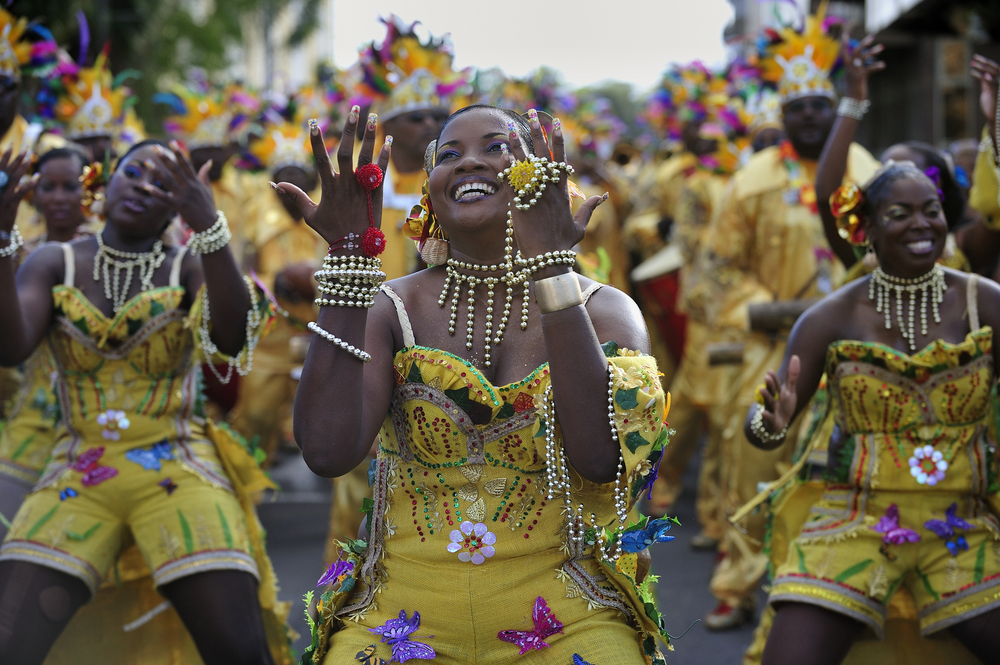
The Carnival of Martinique, like other Carnivals in the region, takes place in the days leading up to Lent. It’s a 4-day-long carnival that takes place in February, with the next Carnival slated for February 16-22, 2023. Grand parades, streets full of music and King Carnival: a bonfire that consumes the statue of ‘King Vaval’ on Ash Wednesday, are among the cultural highlights on the calendar for both locals and tourists. Martinique’s celebrations do not end there, the Mi-Carême celebration (also known as mid-Lent), a mini bonus round of Carnival, reignites the festive mood three weeks later.
3. Trinidad and Tobago Carnival
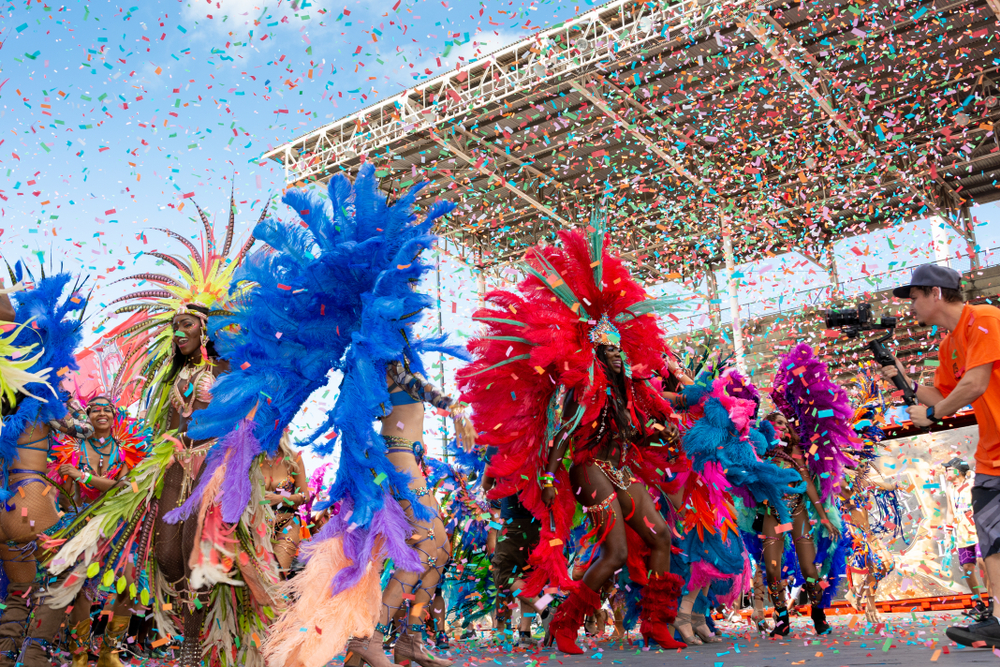
The Trinidad and Tobago Carnival, the largest and most well-known festival in the Caribbean islands, is said to have begun in the 18th century. With the abolition of slavery in 1838, Trinidad and Tobago’s Carnival, which mimicked and mocked the pre-Lenten celebrations of French plantation owners, gained a strong cultural hold. The festival has evolved into a flurry of energy, vibrant colours, calypso and soca music, and a celebration of life. The Trinidad and Tobago Carnival is an annual event held on the Monday and Tuesday before Ash Wednesday in Trinidad and Tobago. This event is well known for the colourful costumes of participants and exuberant celebrations. The next one is scheduled for Monday, February 20th, 2023 – Tuesday, February 21st, 2023
4. Batabano
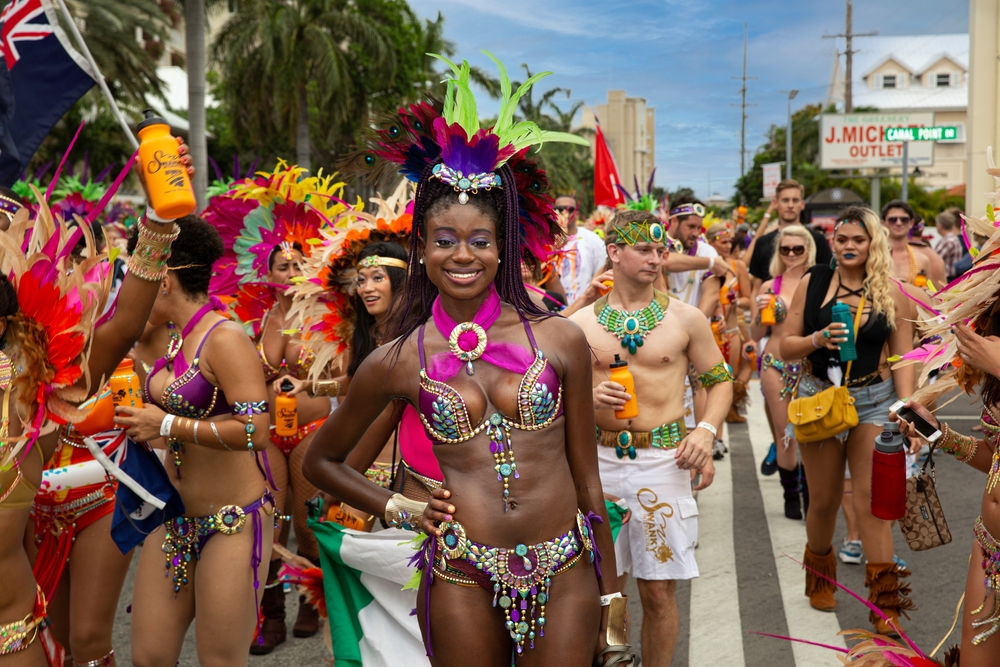
The Cayman Islands Carnival is much younger than its neighbours and abandons the Lent connection. Batabano, which opened in 1983, was designed to honour the residents’ African heritage as well as the vibrant cultural mix that makes up the modern population. The name “Batabona” refers to the tracks left in the sand by native turtles crossing the nest to get to the beach: a metaphor for locals who look to the future while remembering their past. It usually takes place during the first week of May in George Town.
5. Barbados Carnival
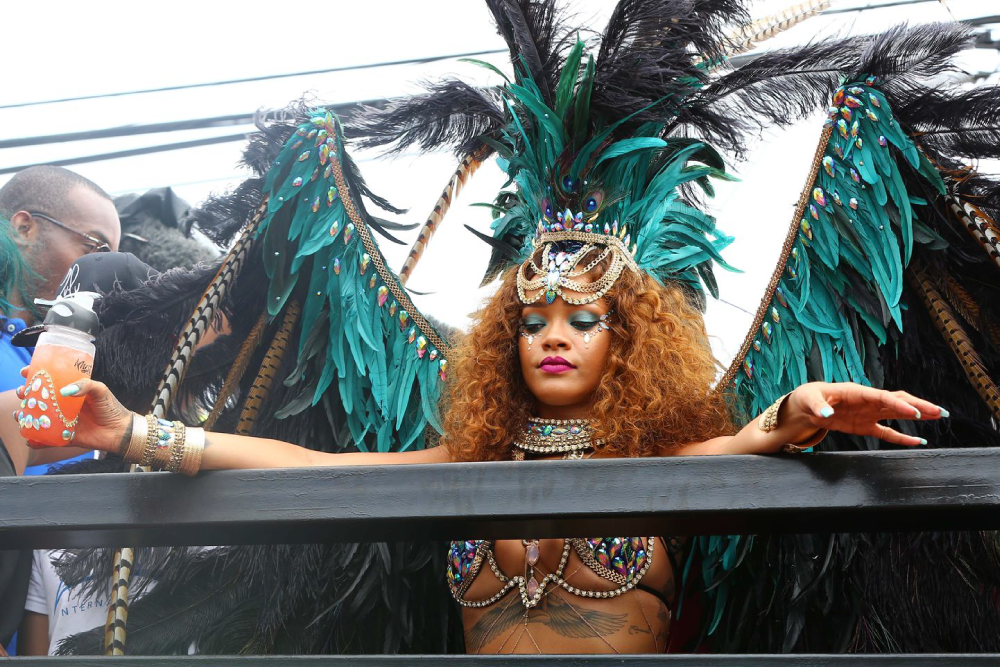
Barbados’ “Crop Over” festival, which dates back to the 1780s and marks the end of the harvest season that occurs in mid-July, is rooted in agriculture. Although the sugarcane industry declined significantly in the twentieth century, the event was later revived and now celebrates the region’s culture and history through music, dance, food and other activities.
The festival spans twelve weeks starting in May, culminating on August 4 with Grand Kadooment Day!
6. Vincy Mas
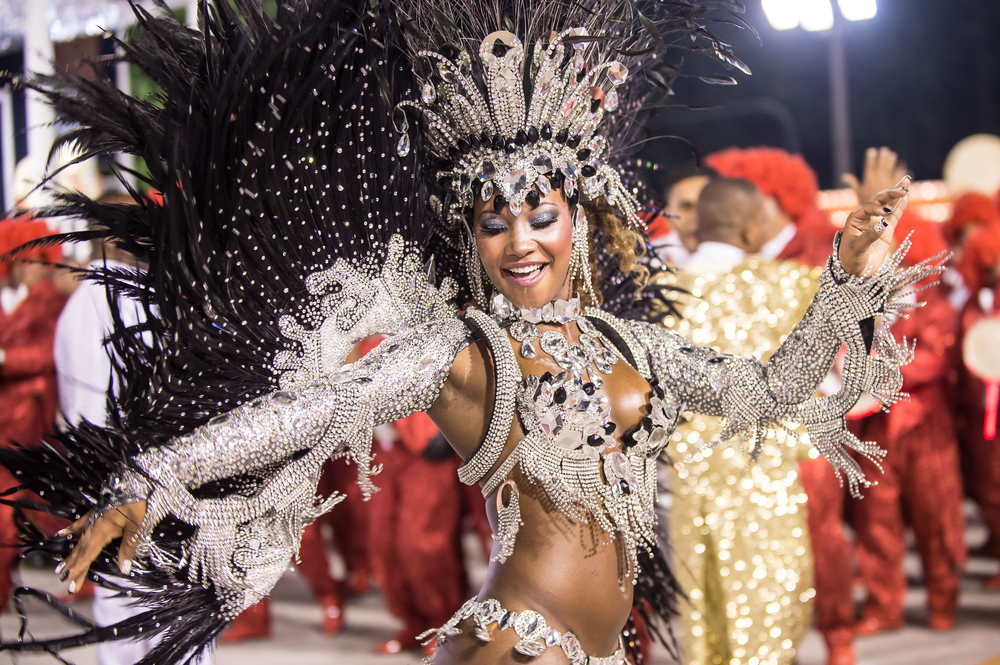
This mass celebration in Saint Vincent and the Grenadines took place before Lent and had a similar origin to the Carnival of Trinidad and Tobago. However, it was decided in 1976 that Vincy Mas should be moved to the height of summer. The festival, which is now held between June and July, usually begins on the last Friday of June and runs for 12 days. It includes events such as beauty pageants, Mardi Gras and J’Ouvert: a street party in which many revellers cover their bodies in oils, mud and paint.
7. Saint Lucia Carnival
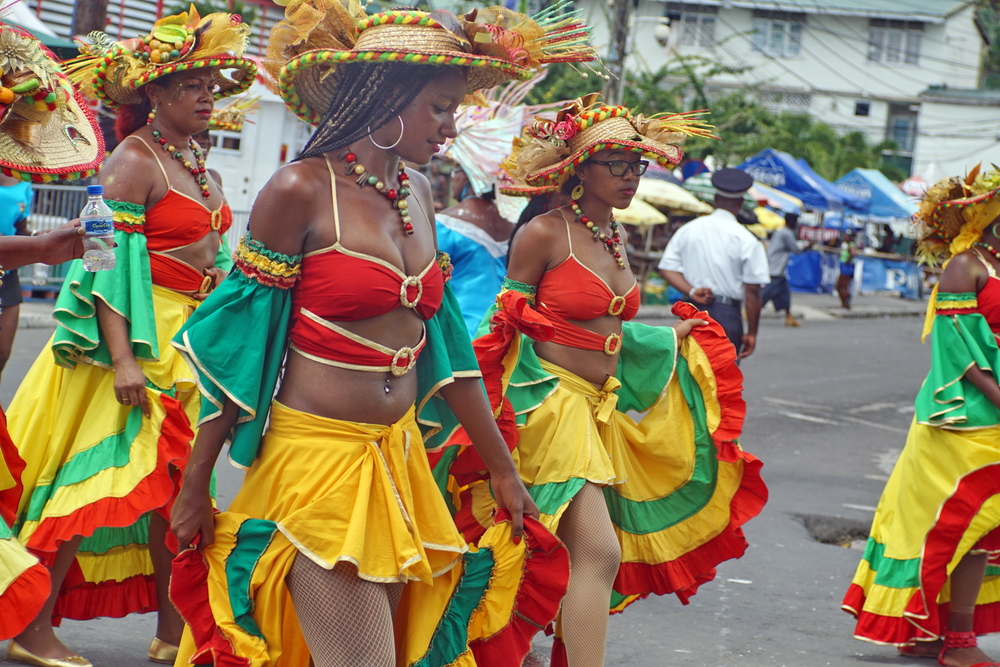
Saint Lucia’s Carnival, which is eagerly anticipated all year, pays homage to the island’s African and Catholic heritage in a colourful spectacle, alongside the sounds of parades of various groups. The Carnival takes place every year in July.
The island’s capital is taken over by calypso and soca dancers and singers like Ricky T, who punctuate the festivities with effervescence. The Carnival’s highlight, which also makes it unique, is its disguise competitions. They recognize the candidates’ efforts and highlight their creativity, as well as the island’s in general. The Calypso King and Queen are then crowned, and the Carnival Beauty Queen is chosen to the delight of the audience.
8. Antigua Carnival
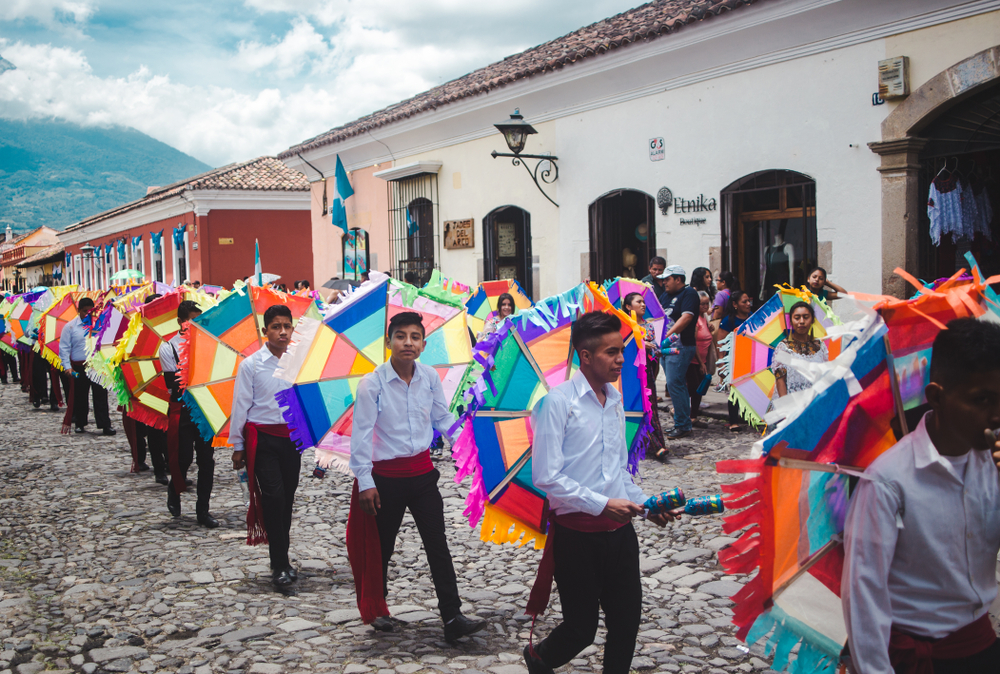
Every year, from the end of July to the first Tuesday in August, this Carnival celebrates Antigua’s emancipation through its animations. Monday’s J’ouvert is an emotional moment that offers a colourful spectacle with parades. Throughout the event, the inhabitants are engulfed in laughter, a festive atmosphere and a spirit of friendliness.
To conclude, a final party until the end of the night, during which visitors and residents parade, dance and sing, brings to a close, these magnificent human moments, framed in the distance by the Caribbean Sea.
9. St. Kitts and Nevis Carnival
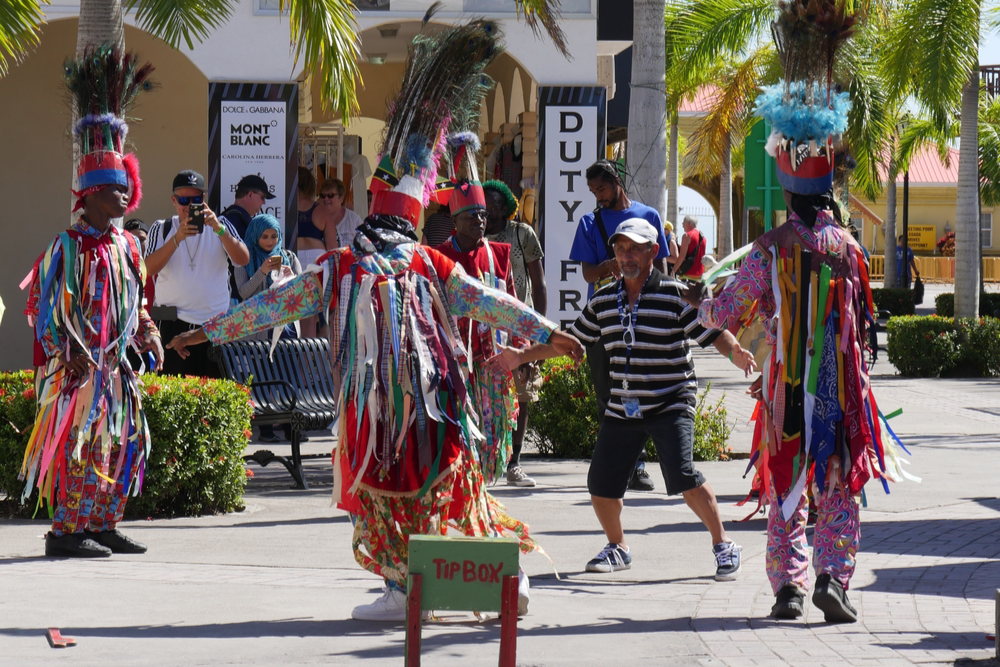
The Carnival of St. Kitts and Nevis is a celebration of African and European folklore. The Carnival of Saint Kitts and Nevis combines Christmas rituals with African tradition, resulting in a bonanza of energy, colour and delight. During the holiday season, many competitions are held, including beauty pageants, costume contests, and music series such as the Soca Monarch.
St Kitts & Nevis National Carnival runs every year for around six weeks starting in the last week of November, running through the entire month of December and culminating on the 2nd January.
10. Junkanoo
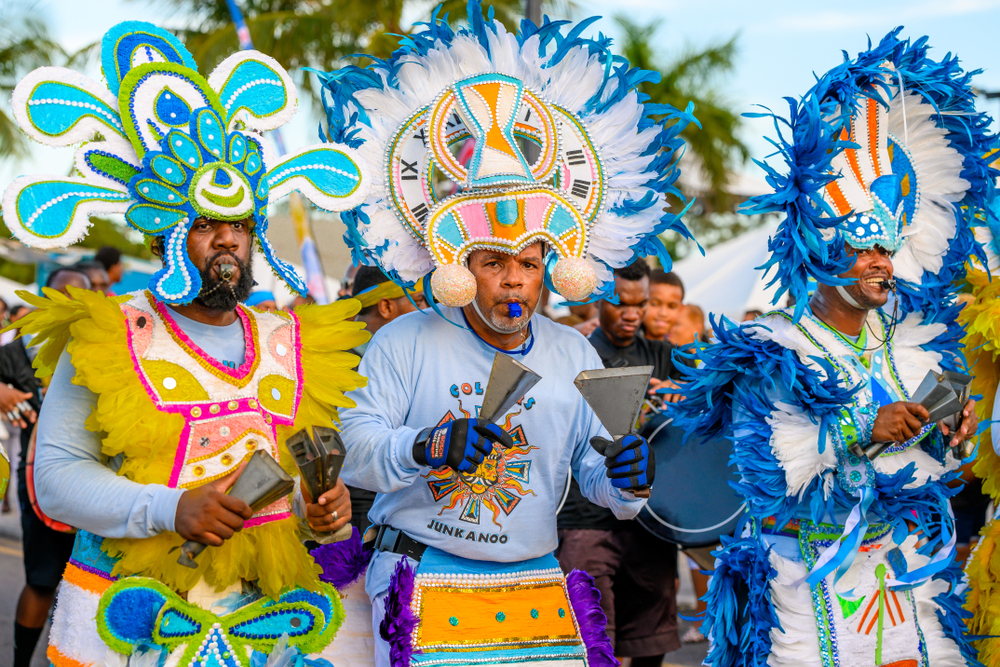
Junkanoo is a holiday celebrated in the Bahamas that begins in the early hours of December 26, with the biggest celebrations taking place in Nassau, the capital city. Junkanoo is a four-day celebration that always runs between Boxing Day, 26th December and New Year’s Day, 1st of January.
The festival is thought to have started during the years of slavery when slaves were allowed to leave the plantations during the holidays to spend time with their families and celebrate their cultural traditions.
These are our top 10, but that doesn’t mean there aren’t other Carnivals. Dozens of Carnivals take place every year, but these were our top picks. What other Carnival do you think should have been added?